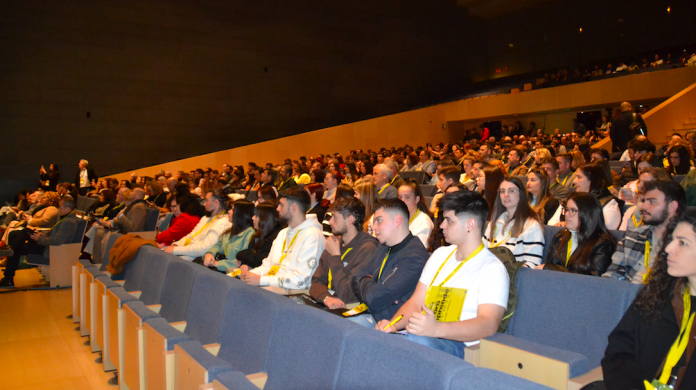The COVID-19 pandemic has affected all of us, no matter you are young, old, employed, unemployed, rich or poor. We have seen its effect in our social life, our jobs and our physical health but, sadly, its impact on our mental health has been disregarded by a significant sector of the population, specially its effects on young people.
According to Dr Nina Heinrichs, professor at the Department of Psychology at the University of Bremen: “Before the pandemic we had about 10-20% of children suffering from mental illness problems, not all of whom progressed to an impairment. Now, from the last 2 years, it looks like it’ll go up to 20-25%.”. With this sentence we can conclude that, although mental health among European young people was already deteriorating before the pandemic, numerous studies have observed sharp increases in the rates of depression, tension and anxiety among young people during the COVID-19 crisis. Concern for the health of family members, financial difficulties, and disruption to education and social relations have left many young people afraid, frustrated and uncertain about their future. Moreover, the available data show that young people’s mental health has been disproportionally affected in comparison with other age groups.
When we look at the study The impact of the COVID-19 pandemic on the mental health of young people, published in October 2022:
“The physical closure of schools and educational institutions at large not only significantly disrupted the main social dimension in the lives of young people but also meant that psychological and emotional issues were less detectable […]. Relatedly, loss of employment – one of the major impacts on young people during the pandemic. In general, during economic crises, younger workers are more vulnerable to losing their jobs because of their limited experience and the prevalence of temporary contracts among this age group.”
With this in mind, we can conclude that the COVID-19 pandemic has had a severe effect on the psyche of young people all across the globe. When we delve into Spanish academia researching on this topic, we can find alarming results like the statements of representatives of the Spanish National Health System that says: “The increase in consultations for anxiety, depression and self-injury is of concern to Spanish pediatricians, who are calling for greater awareness of the emotional health of minors. The COVID-19 pandemic has generated many consequences on the mental health of society, especially in the early stages of life, since this is when we are especially vulnerable.”
When we look at the data collected by the different Health Centers and hospitals of the country, we have that the number of cases related to mental health on young people has been in crescendo. For example, staff of the Sant Joan de Déu Hospital in Barcelona, reports that during the first quarter of 2022 “47% more emergencies related to the mental health of young people have been attended than during the same period of the previous year”. According to the center’s data, “in the last year the number of urgent referrals to the eating disorders unit has doubled and the number of consultations for this disorder to the children and youth health centers of the community area of Catalonia has increased by 25%”.
But what is the situation in Extremadura? Well, the situation in the region is not better than the national average. According to one of the most recent studies regarding mental health, employment and youth, Juventud en Extremadura 2021¸ only 12% of young people live solely on their income, making economic dependence a serious problem, only 10% live in their own home or with a partner, while more than 87% have to share housing with family or other people.
Having going through all of this data, we can conclude that the pandemics has greatly affected all aspects of the life of young people as much as adult and elder people, with the exemption that with the movement from in-situ employment towards teleworking and the closure of a lot of hospitality and entertainment businesses, a sector intimately related to temporary and contingent employment, the toll the pandemic had in the job prospects of young people has been much more severe.
From FUNDECYT we believe that even though the pandemic has affected all aspects of young people we can at least try to solve some of its effects by enabling young people to have access to a better job market and by building new capacities in their territories to foster new, sustainable self-employment. Thanks to the activities of the RAISE Youth project in Extremadura, we have seen that this can become a reality and that the rapid digitalization of the job market that arose during the pandemic can become an advantage to young people, helping them create new initiatives and collaborate with each other from miles apart, thus reinforcing and reinvigorating their territories, communities and creating new network for future generations of entrepreneurs.


